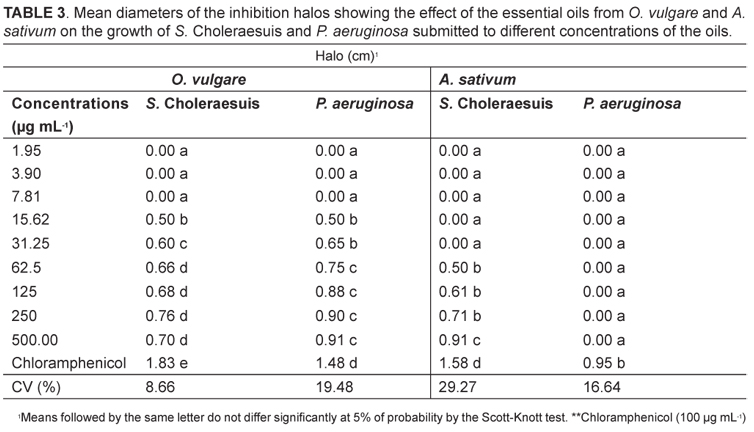This study sought to evaluate the chemical composition of the Allium sativum and Origanum vulgare essential oils and their effect on the growth inhibition of microorganisms, such as P. aeruginosa, S. Choleraesuis, A. flavus, A. niger and P. simplicissimum, important food contaminants. The main constituents of the oregano essential oil were 4-terpineol (27.03%), γ-terpinene (20.04%), and β-cymene (6.34%), and the main constituents of the garlic essential oil were diallyl trisulfide (38, 81%), diallyl disulfide (25.23%), and methyl allyl trisulfide (12.52%). Inhibition zones were formed in in vitro tests on the bacteria S. Choleraesuis and P. aeruginosa, except for A. sativum against P. aeruginosa. The inhibition of mycelial growth caused by the oregano essential oil occurred with the concentrations of 0.10, 0.03 and 0.05 mg mL-1 for the A. flavus, A. niger and P. simplicissimum fungi, respectively. The CMI for the garlic oil began at the 0.03 mg mL-1 concentration for all species of fungi. The oils presented an inhibitory effect against the microorganisms studied and constitute an alternative for microbiological control in food.
essential oil; food contaminants; chemical composition






